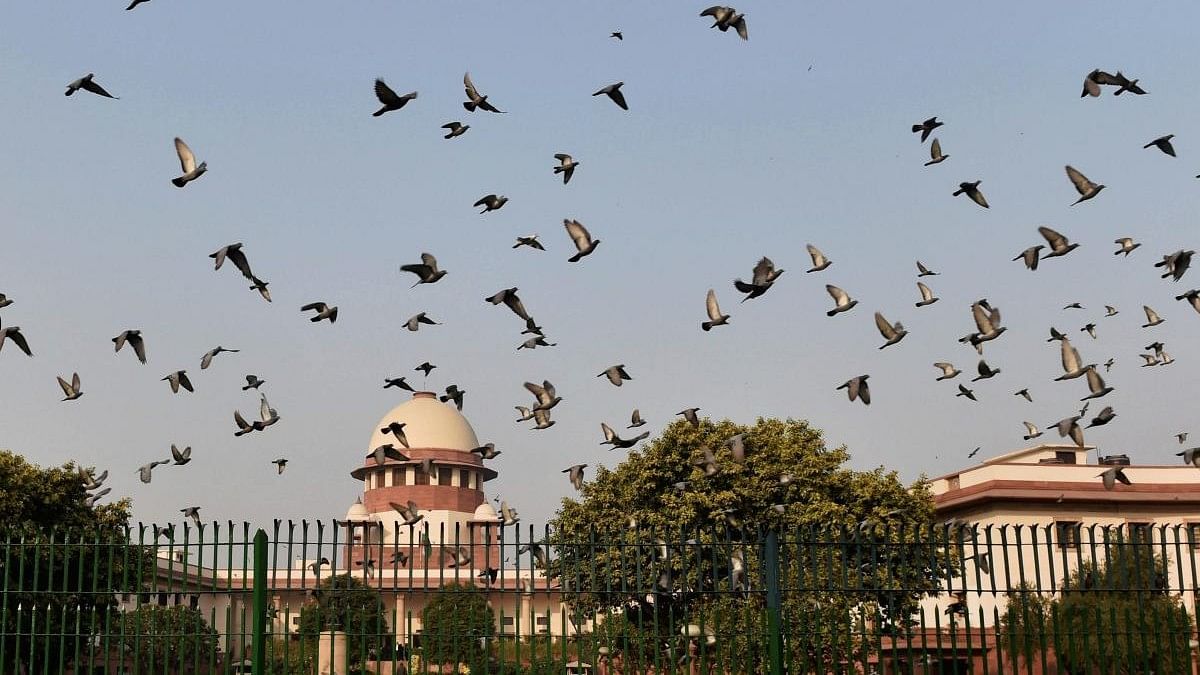
Supreme Court.
Credit: PTI File Photo
New Delhi: The Supreme Court has said intentional insult or abuse coupled with the humiliation is to made in any place within public views in order to make it an offence under the Schedule Caste and Scheduled Tribe (Prevention of Atrocities) Act.
A bench of Justices M M Sundresh and S V N Bhatti said the expression “in any place within public view” in the provision has an important role to play in deciding whether the allegation attracts the ingredients of an offence or not.
"An important test for “in any place within public view” is within the view of persons other than the complainant," the bench said in its judgment on Friday.
The court allowed an appeal by Priti Agarwalla and others, parents and trainee athletes of the Olympic Riding and Equestrian Academy (OREA) against the order for lodging of the FIR for offences under the SC/ST Act on a complaint by an international horse riding champion.
Senior advocate Sidharth Luthra for the appellants contended the administrator of OREA instigated the complainant to file a complaint alleging offences, though none existed over the years, after the official was unsuccessful in getting anticipatory bail in FIRs lodged against him. He said the magistrate carefully considered the complaint filed under Section 156(3) of Criminal Procedure Code and applied his judicial mind in seeking action taken report from the police, which found no ground to proceed in the matter.
He also said the WhatsApp conversation prima facie does not attract any of the ingredients constituting an offence under section 3(1)(r) of the Act of 1989.
Advocate Kapil Nath Modi, who also acted as administrator of the academy, contended the complaint disclosed cognisable offences and the complainant suffered in silence the caste slurs for months and years, and mere delay would not lead to any adverse inference.
The bench, however, said there cannot be two views on the proposition that to cause or register an FIR and consequential investigation based on the same petition filed under section 156(3) of the CrPC, the complaint has to satisfy the essential ingredients of the offences alleged. In other words, if such allegations in the petition are vague and do not specify the alleged offences, it cannot lead to an order for registration of an FIR and investigation, it said.
The bench said the allegations read together or individually do not satisfy the requirement of having been made in public view.
The court said in a case such as the present, directing registration of FIR and further steps is unsustainable.
Having noted acrimonious allegations and counter-allegations made between parties and filing of 15 complaints against each other, the bench said, "A doubt arises whether someone who cannot calm oneself can calm and guide a horse in the horse’s enthusiasm to perform each element with minimum encouragement from the rider and be an equestrian. We leave it to the passion and path of the parties."
In a connected appeal by the Delhi government against the order to lodge the FIR against the SHO for negligent act, the bench said the commission or omission of any of the duties by the public servant becomes a cognisable offence against the public servant only on the recommendation of the administrative enquiry, for in law, an offence means any act or omission made punishable by any law for the time being in force.
"The competent court can take cognisance of the commission or omission of any duty specified under sub-section (2) of Section 4 when made along with the recommendation and direct legal proceedings. Therefore, to constitute a prima facie case of negligence of duty, the proviso to subsection (2) of Section 4 contemplates an administrative enquiry and recommendations," the bench said.
